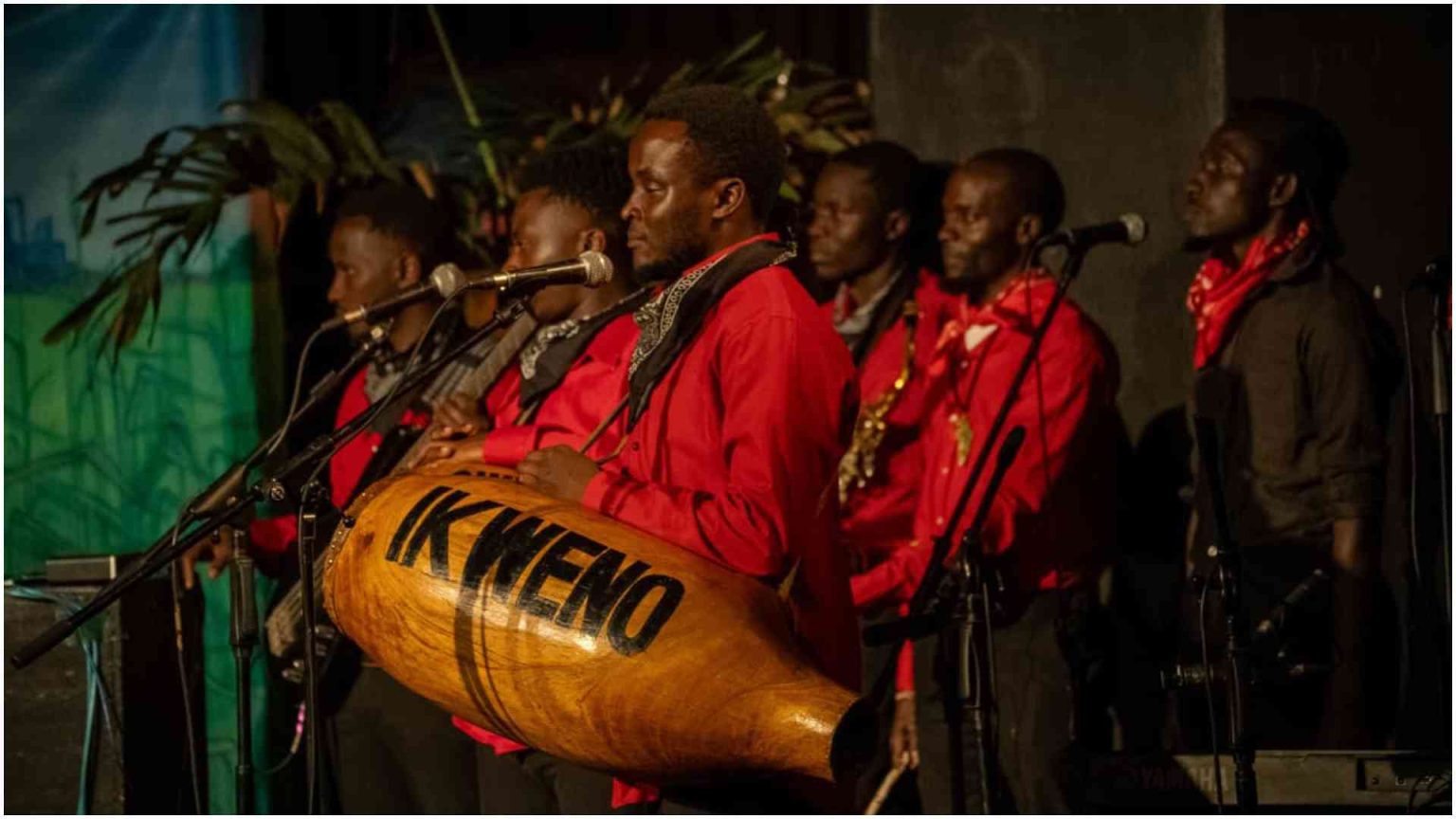What really makes a “big boy”? Flashy cash? Social clout? Power moves? Big Boys of Shibale flips the script.
Set in the once-buzzing Shibale Township of Kakamega back when Mumias Sugar Company was the town’s heartbeat, this explosive stage hit dives into the lives of young kings of the sugar boom era.
They had swagger, dreams, and everything sweet… until the factory fell and reality hit hard. But instead of fading out, they hustled, adapted, and rose again, not with riches, but with raw resilience. This is the story of how the real “big boys” are made not by fortune, but by fire.
“It’s a story that belongs to the people,” says director Mark Wabwire. “When I was researching for the script, I realised that behind all the political rhetoric and headlines about Mumias, there were actual families living this collapse. Their stories weren’t being told. That’s what I wanted to capture the lived experiences, not the boardroom decisions.”
From its first scene, Big Boys of Shibale is no ordinary play. Two narrators, played with charm and intensity—anchor the story, trading banter and memories like griots of old. Around them, a live band fuses traditional instruments like the isukuti with modern beats, while dancers punctuate the story with bursts of rhythm and emotion.
“This performance is deeply inspired by African oral storytelling,” explains Allan Wasike, better known as Emperor Shaker, who doubles as both narrator and producer.
“In our culture, stories were never told in isolation. There was music, rhythm, laughter, movement—it was a communal experience. We wanted to bring that to the stage.
Since its premiere, the award winning play has travelled far and wide. It has graced stages at the Kenya National Theatre (KNT), the Kenya International Theatre Festival (KITFEST 2023 & 2024), and the Kampala International Theatre Festival (KITF 2024).
Along the way, it picked up critical recognition; nominated for Best Storytelling Production at the 2023 Kenya Theatre Awards, and winning Best Sound Design in 2024.
But the real turning point came in 2025, when the play received the prestigious HII STAGE II grant, awarded by the French Embassy in Kenya through Creation Africa and administered by Alliance Française Nairobi. The grant enabled the team to embark on a five-county tour across Nairobi, Mombasa, Eldoret, Kisumu, and Kakamega.
At each stop, the reception was electric. The show trended on X (formerly Twitter), sparking conversations about Kenya’s lost industries and the resilience of its people. In every city, the cast earned standing ovations, five in total throughout the tour.
“For me, the standing ovations weren’t just about us as performers,” Shaker reflects. “They were about the audience seeing themselves in the story. People from Kakamega, Kisumu, or even Kampala would say: ‘This is us. This is our story too.’ That’s when you know you’ve touched something bigger than theatre.”
What makes the play so powerful is that it’s not just research—it’s lived experience. For Shaker, who grew up in the estates of Nzoia Sugar Company, the story hits close to home.
“I saw firsthand what happens when a sugar company collapses,” he says. “The schools, the hospitals, the sports teams, all of it depended on the company. When it went down, everything went down. That’s why when I narrate Big Boys of Shibale, I’m not just acting. I’m telling a story I’ve lived.”
The tour was not just a cultural triumph; it was an economic one too. The production brought together over 15 creatives, including actors, musicians, dancers, and technicians. With fair pay supported by the grant, the team demonstrated that theatre can be a viable livelihood, not just a passion project.
“There’s this stereotype that Kenyan theatre is just a hobby,” says Wabwire. “But Big Boys of Shibale shows otherwise. It created jobs, it generated revenue from merchandise sales, it opened doors for cross-border collaborations. That’s the kind of future we need for our creative industry.”
The play also sparked cultural exchange. Performing in Kampala, the team realized that Kenya’s struggles with collapsed industries mirror those across the region. “People kept saying, ‘This is our story too,’” Shaker says. “That’s when you see the power of art—it crosses borders, it unites experiences, it heals.”
With its tour wrapped, the Big Boys of Shibale team is now eyeing international stages, from Africa to Europe. Discussions are underway to adapt the play for digital streaming, expanding its reach beyond theatre halls. But even as they look outward, Wabwire insists the mission remains local.
